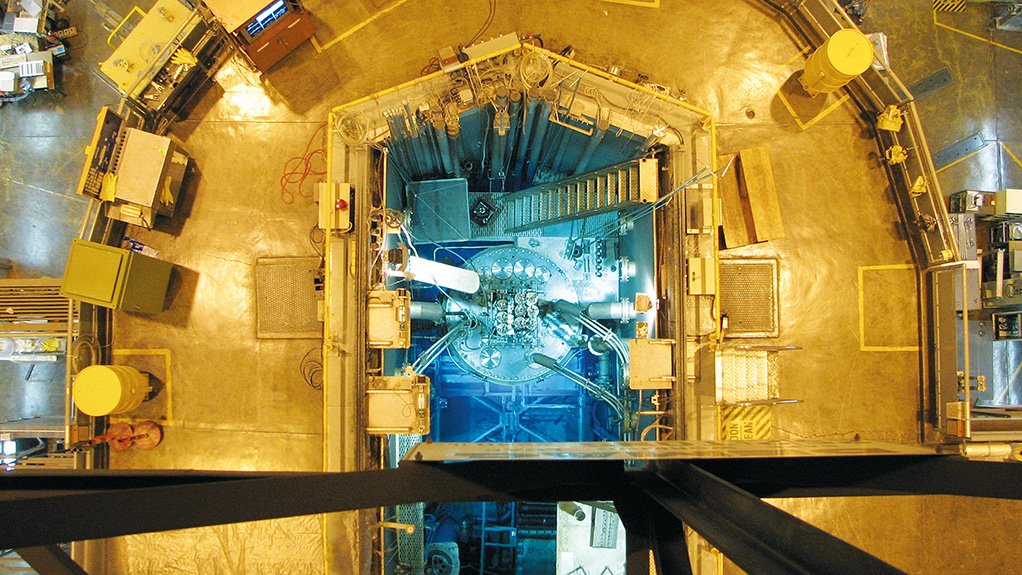
The start of the NWU’s Nuclear Engineering Impact Initiative dates back over three decades, to a period when South Africa was shaping its energy future and regulation framework. Originally sparked by the national push for skilled professionals in high-demand energy fields, the university laid the groundwork for what would become one of the country's most respected nuclear academic programmes.
As the sole university in the country offering postgraduate qualifications in Nuclear Engineering, the NWU has gradually developed into a hub of excellence that supports national capacity, industrial innovation, and international collaboration. From early partnerships with regulatory authorities and reactor facilities to modern-day collaborations with the IAEA, NWU’s journey reflects its commitment to nuclear education that is safe, forward-looking, and impactful.

Prof Vishana Naicker
Innovation & Technology
The NWU’s Nuclear Engineering team is deeply involved in nuclear science and technology development with a strong focus on innovation that protects lives and ecosystems. Key research areas include:
- Reactor Physics and Safety Analysis: Using neutronics, thermo-hydraulics and fuel performance tools to ensure safe reactor shutdown under all conditions.
- Fuel Cycle & Waste Management: Emphasising sustainability through advanced reprocessing and long-term waste storage solutions.
- Thermal-Hydraulics & Systems Engineering: Modelling heat and fluid dynamics to optimise reactor cooling and emergency response systems.
- Multiphysics Modelling: Integrating structural, fluid, thermal and neutron behaviour for accurate system simulations.
- Uncertainty Propagation & Accident-Tolerant Fuels: Enhancing safety through participation in IAEA CRPs and development of advanced fuel models.

Impact & Outcomes
What difference does all this make? In a word: confidence. Confidence that nuclear technology, properly governed, can be a clean, safe, and resilient energy solution.
| Type | Details |
|---|---|
| Personal | Graduates are employed globally — from Eskom and NECSA to SCK-CEN in Belgium — and gain hands-on experience that defines their careers. |
| Institutional | Partners with key agencies such as the NNR, DMRE, NECSA and Sanedi to shape training and policy frameworks for national safety and growth. |
| Social & Environmental | Improves reactor safety and regulatory frameworks, while safeguarding communities and ecosystems through better waste and exposure management. |
| Economic | Supports stable energy supply and local job creation by reducing reliance on international consultants. |
What’s Next?
The global nuclear landscape is evolving, and NWU is preparing South Africa to meet the future through:
- Advanced Fuel Modelling: Leading South Africa’s involvement in IAEA research on TRISO particle fuel performance.
- Short Courses: New training offerings in nuclear safety and policy aimed at industry professionals.
- Strategic Advisory Role: Acting as a national think tank for policy and the deployment of small modular reactors.
Aligning with the SDGs
The initiative supports multiple Sustainable Development Goals:
- SDG 4 – Quality Education: Training engineers and scientists through recognised postgraduate programmes.
- SDG 7 – Affordable & Clean Energy: Improving nuclear safety and efficiency for a sustainable energy future.
- SDG 9 – Industry, Innovation & Infrastructure: Driving innovation in reactor design and waste management.
- SDG 12 – Responsible Consumption & Production: Minimising nuclear waste and optimising fuel use.
- SDG 13 – Climate Action: Ensuring nuclear remains a viable low-emission energy source.

Leading with Caution, Building with Courage
The NWU’s Nuclear Engineering team believes that science must serve people — not just power. Through precision, transparency, and responsibility, the initiative champions an ethical and impactful approach to nuclear innovation.
